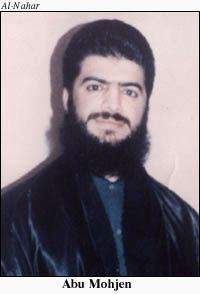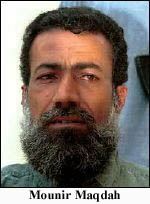 |
| Vol. 3 No. 11 | Table of Contents MEIB Main Page | November 2001 |
Security Forces' Raid Draws Thousands of Protestors
Lebanese security forces stormed the campus of Saint Joseph University (SJU) on November 21 as students held a demonstration protesting the Syrian occupation. The students, mostly members of Michel Aoun's Free National Current and various Christian opposition groups, but also including some members of Walid Jumblatt's Progressive Socialist Party and the Communist party, carried anti-Syrian posters and Lebanese flags draped with black sashes to signify the country's loss of sovereignty. The police tore down the posters and flags, as well as photographs of plainclothes intelligence agents beating protestors in August, but made no arrests.
The raid was condemned by the Beirut Bar Association and several members of parliament. Al-Nahar editor Gibran Tueni wrote in an editorial that the state behaves as if "it is the enemy of its own people."
On November 26, SJU and Notre Dame University canceled classes to allow students to demonstrate against the raid, while thousands of students at Balamand University, the Lebanese American University, the American University of Beirut, and other institutions boycotted classes in protest.
 |
Suspected Hezbollah Financiers Arrested in South America, Canary Islands
On November 14, Chilean police arrested two Lebanese-born businessmen suspected of illegally financing Hezbollah. Hussein Mahmoud Shaheen, an American citizen, and Hatem Hammad Barakat, a Paraguayan national were arrested at Iquique Airport in the north of Chile as they were preparing to travel to Paraguay. Official sources said that a number of businesses owned by Barakat in Iquique's free zone were funneling money to the militant Lebanese Islamist group.
The arrests came just over a week after the Chilean government acknowledged that the police are investigating businesses with suspected ties to the Hezbollah. The following day, the Santiago Appeals Court appointed a special judge to oversee the investigation. In September, Paraguayan security forces arrested 7 Lebanese nationals and a Lebanese-born Brazilian allegedly linked to Hezbollah in the "Triple Frontier" area along the borders of Paraguay, Argentina and Brazil.
On November 20, Spanish authorities announced that 11 people suspected of arms trafficking, fraud and illegal financing of Hezbollah and the Shi'ite Amal movement were arrested. The group, which police said was based in the Canary Islands, is believed to have netted around $10.6 million per year from timeshare fraud against British and German citizens.
 |
Opposition Candidate Wins Bar Elections
A candidate backed by Lebanese opposition groups was elected president of the Beirut Bar Association on November 18, roundly defeating a rival backed by Prime Minister Rafiq Hariri. Raymond Shedid, who was endorsed by Michel Aoun's Free National Current, Walid Jumblatt's Progressive Socialist Party, several Christian parties, as well as independent Christian and Muslim lawyers, defeated Boutros Doumit 2093-1095. Shedid promised that the Bar Association would remain "the bastion of democracy" and continue to "defend public liberties, local laws and the Constitution."
Two Syrian Workers Killed by Unidentified Assailants
A Syrian worker was found dead from a gunshot wound to the head in the village of Zayti, near Sidon, on November 5. Another Syrian worker was killed on November 27 in a grenade attack at the home of his employer in the village of Niha, near Zahleh in central Lebanon. Six Syrian workers have been killed by unidentified assailants in recent months and many more have been injured in clashes with local residents. An estimated 1.4 million Syrian workers currently reside in Lebanon, angering impoverished agricultural laborers who say that the Syrians take away much-needed jobs.
$250 million of Brazilian Drug Money Reportedly Laundered in Lebanon
According to a report released by the Bolivian government, over $250 million of suspected drug money has been transferred from Brazil to a Lebanese bank, via Bolivia, during the last seven years. Ramiro Rivas Montealegre, the director of Bolivia's Financial Unit, said that there are "indications of a link between arms traffickers, drug traffickers and international terrorists." Authorities in Brazil are investigating 10 Lebanese citizens living there who are allegedly involved in money laundering. The report is a major blow to the Lebanese government, which has come under international pressure to further reform its bank secrecy laws. Lebanese Finance Minister Fouad Siniora called the Bolivian report "concocted and entirely baseless."